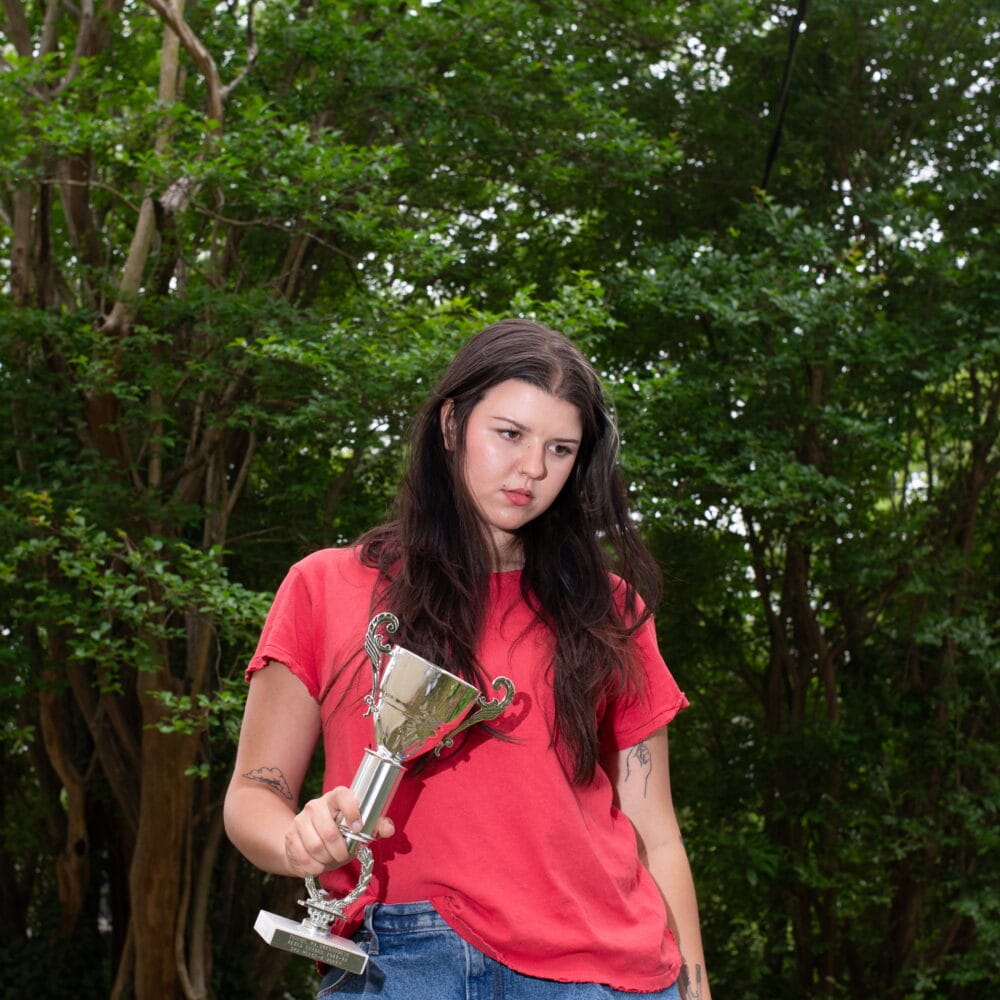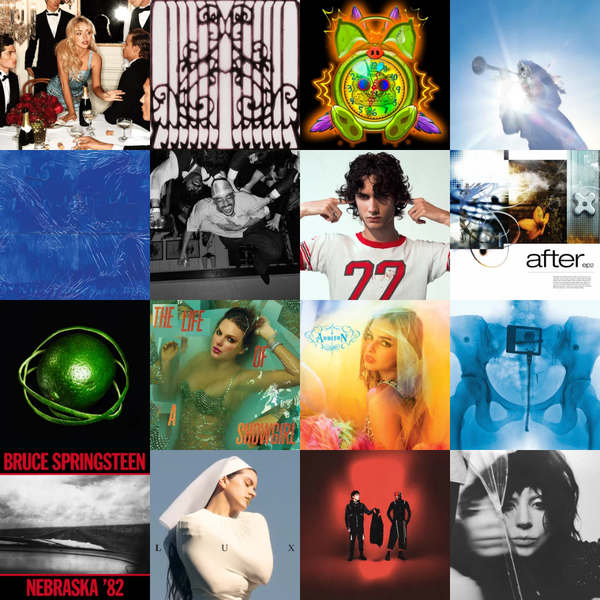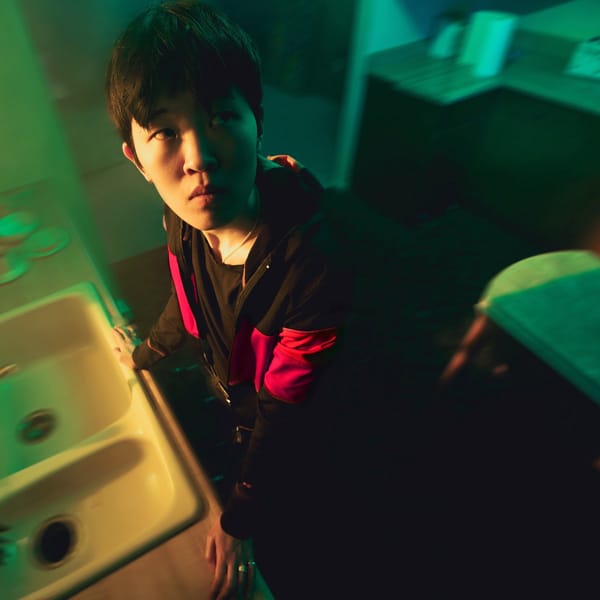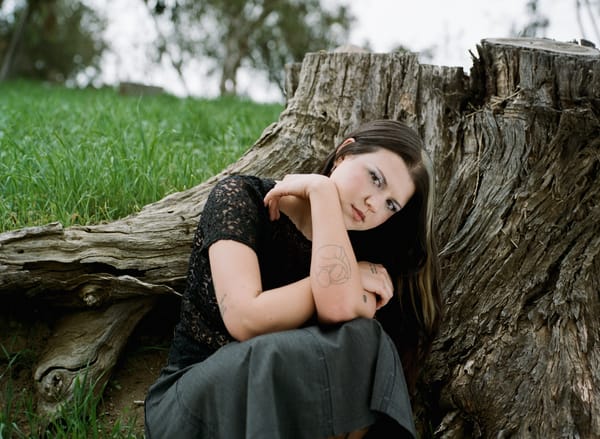Something I Won’t Ever Get: Thoughts On Eliza McLamb’s “Like The Boys”
In her prose and in her lyrics, songwriter Eliza McLamb infuses cultural and societal commentary with a visceral emotional intensity that often feels outright confrontational. This is my reaction to her new song “Like The Boys.”

This is a little different than I normally write! Here’s a little essay about Eliza McLamb’s “Like The Boys”. I’m on deadline for at least two other pieces right now so I’m keeping this intro short. This post is functionally a followup to my essays about the Japanese House's "Boyhood" and "The Weakness", so read that if you like this. I have an extended 1500-word version on the paid tier, but if you DM me asking for the full thing I’ll send it to you. No one turned away for lack of funds, as they say!
In her prose and in her lyrics, songwriter Eliza McLamb infuses cultural and societal commentary with a visceral emotional intensity that often feels outright confrontational. I particularly admire her posts on the effect of TikTok on songwriting and the backlash to ‘authentic’ pop – of her less musical related ones, her exploration of “girlhood” and learned helplessness in “Grow Up, Girls.” is the strongest. I don’t always agree with her, but the way she distills her emotional truth into finely crafted alt-pop can’t be denied. A week ago, she cleared her instagram account to tease her upcoming song "Like The Boys", the leadoff single from her upcoming record Good Story. It's immaculately written, with loping verse melodies that go to unexpected places and a chorus that builds tension without ever fully resolving. It's also immaculately produced (as is everything with Sarah Tudzin at the helm), and I particularly love the way the stereo image drastically expands during the last thirty seconds, almost approaching Blue Rev territory in its dreaminess.
In a statement, McLamb discusses her jealousy of men who seemingly had “a natural slide from boyhood into manhood”, as opposed to the "schizophrenic slide of girls into women. one that provides more questions than answers, more restrictions than freedom". In a sense, it treats these things as immutable truths: men will have it easy, women will go through hell, and the best we can do is proximity to masculinity. It’s never truly that simple, but that’s the framework of the song. She’s written about similar subjects before: on Going Through It’s “Mythologize Me”, McLamb begs a man to “make me in your perfect image of a girl” with a deliberately Swiftian melody. Even in her newsletter, she’s written the following about the stigma of “woman’s art”: “Every woman artist will have the realization [that] to most men, your work will be an expression of the female experience instead of the human one.” This song directly addresses the limitations arbitrarily placed upon women, but does so in a way that ironically, possibly intentionally, defines women against men.
Last week, I passed my fifth year on HRT. Throughout transition, I’ve gotten weird comments from cis women about how I’m “transitioning to the wrong gender” or how being semi-closeted was somehow “winning womanhood” since I could pick and choose whether I was seen as one. You don’t need to read Julia Serano or Judith Butler to know the shame associated with being a woman. There’s a reason why sufficiently online girls call their male celebrity crushes or IRL boyfriends "babygirl" and compliment Cillian Murphy's "slutty little waist", as if it's only acceptable to like men if they're objectified like women are. I did all this work to come out and change my body, and when Eliza McLamb sang about how the grass is greener on the boys’ side, I somehow got it anyway.
The song itself depicts a more immediate frustration than the thoughtful analysis accompanying its release. The chorus goes "they had something I won't ever get/but I kept chasing it, waking up in their beds", hoping desperately to gain societal power. (Unsex me here!) What keeps this song from being too myopic is the next two lines of that chorus: "I like the boys like the boys like to shoot their guns/Something I can hold in my hand pretending to be someone." As McLamb rightfully asserts, many boys don’t even live up to the gun-toting bros depicted in the video. That's what McLamb is alluding to at the end of her statement and the end of her chorus, but the video presents a more uncomplicated version of it: just some woman standing amongst the guys being dudes, left out of what looks like the peak of human experience.
There’s a difference between wanting the societal privilege that comes with being a cis straight white man and actually wanting to physically inhabit a masculine (whatever that word means) body that runs on testosterone. I'm fascinated by the way the video blurs this desire; the camera fixates on two men's bare chests as they wrestle, a sort of hetero female gaze* on the male form I also saw in Emerald Fennell's eyeroller Saltburn and countless Tumblr posts growing up. And even as a trans woman who identifies as lesbian, I understand. When I'm with my brothers, we are three guys making each other laugh, not two boys and a girl. When I'm talking audio gear on a Discord server, I am one of the tech bros, because they can't physically see I'm not one of them and adjust accordingly – just like how in high school, I loved when people mistook me for a woman due to my Karen Gillan Tumblr icon.
I guess the way to win the “boy's game” is not to play; McLamb herself directs the video, and recruited Sarah Tudzin for production, though Greg Obis still masters (he did the great Maria BC record, so he’s honestly a true ally in my book). In general, the way out of all this is listening to more perspectives. I find a lot of people get lost in theory instead of working with what’s right in front of them, and that leads to everyone making up people to get mad at. It’s also offering different paths of being within those perspectives; there’s a reason audiences are fawning over the enjoyable but flawed new Superman, because that Superman is a dork who does the right thing instead of a walking grimdark male power fantasy. Actually learning and listening to others is the way out of this cultural nightmare, not becoming men, but becoming something different. McLamb's song, video, and statement fight against their own myopia; it’s easy to be fatalist, and this looks into the heteropessimism void and steps away.
I think of a conversation I had with my non-binary best friend about the Barbie movie; that movie depicts an all-women Supreme Court, when the true best case is probably abolishing the Supreme Court altogether. We can't keep banging at the walls that separate our bodies and minds, or any other category, then blaming ourselves when it won’t give. It makes me think of another McLamb song, “Glitter,” where she speaks to a best friend in an abusive relationship by saying “every time you say he loves me/I say that’s not what love means.” She repeats that last line until it becomes a mantra for herself: love can mean whatever you want it to mean. So can gender.
* I don’t know how McLamb identifies and deliberately didn’t look up any statements about her identity to keep the focus on the music, so I’m saying “hetero” purely in the “attracted to men” sense.
There are some big things coming up, so make sure you’re subscribed!


